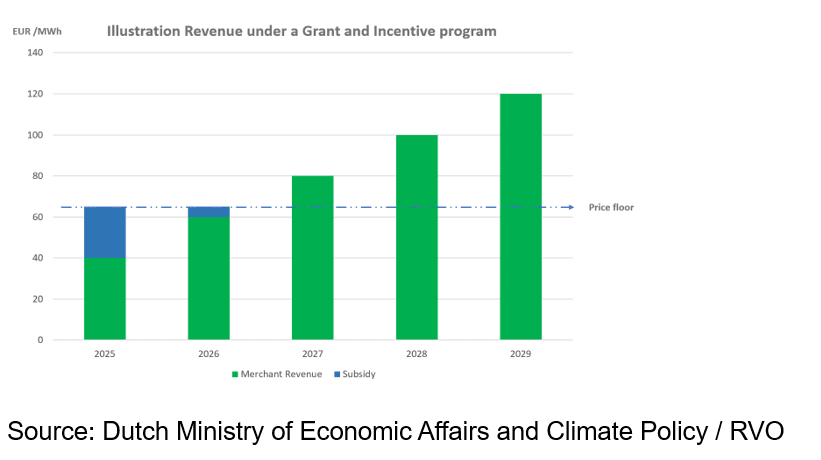As the world moves towards sustainability, businesses are under increasing pressure to align with environmental, social, and governance (ESG) principles. In a previous article, we addressed the significance of considering tax positions within the Corporate Social Responsibility Disclosure (CSRD) context. Today, we will go deeper into this topic, exploring how tax laws and sustainability intersect while addressing the ethical challenges that come with it.
This article is written by Hendrik Bastiaans ([email protected]) and Dick Brinkhof ([email protected]). Hendrik and Dick are both part of RSM Netherlands International Tax Services Practice with a focus on Sustainability and taxation.
The European Union (EU) has set clear rules for what counts as sustainable economic activity through its Taxonomy Regulation. Meeting these criteria offers several benefits, including access to funding through the Sustainable Finance Reporting Directive (SFRD) and the European Green Deal Investment Plan (EGDIP). Additionally, businesses need to meet environmental standards outlined in the Corporate Sustainability Reporting Directive (CSRD). Following these standards not only earns goodwill but also opens doors to financial opportunities and better ESG reporting.
Subsidies
In the current situation, wind farms are still attractive investments. One of the reasons is the grant and incentive programs that subsidize an unprofitable market price to a certain price floor. Some of these subsidized schemes lack regulations like price caps or windfall mechanisms allowing investors to gain substantial profits in a booming energy market and limit the financial risks when prices go down. Below an illustration of how such a grant and incentive program functions:

The European Green Deal Investment Plan (EGDIP) is the investment pillar of the Green Deal. To achieve the goals set by the European Green Deal, the Plan will mobilize at least €1 trillion in sustainable investments over the next decade. Part of the plan, the Just Transition Mechanism, will be targeted to a fair and just green transition. The EU taxonomy will feed into the InvestEU climate tracking methodology that will be used by the InvestEU Implementing Partners. The Commission will also explore how the EU taxonomy can be used in the context of the European Green Deal by the public sector, beyond InvestEU.
Ethical Dilemmas in Tax Planning for Sustainable Energy
The path to sustainability through tax planning is not always straightforward, especially in the renewable energy sector. When it comes to wind farms, ownership structures can be unclear. Investors can use entities registered in jurisdictions like Luxembourg and the Cayman Islands. The use of these jurisdictions can raise eyebrows due to the impression by the wider public that there is a potential exploitation of tax loopholes in combination with the use of public funds to support sustainable activities. It is, therefore, recommended to take due care in how the fund is structured and have solid tax policy backing it up in case the structure might be questioned by stakeholders. This could prevent any adverse media exposure and prevent reputational risks that your sustainable business is linked to any sort of tax controversies.
Tax planning (that is carried out contrary to the spirit of the law) in combination with the use of grant and incentive programs could form a burden for the government revenue. This could damage the reputation of sustainable business activities with the wider public, creating ethical concerns. It might be legal but not considered to be in line with ESG.
When a sustainable business activity wants to be acknowledged as a sustainable business activity in line with ESG norms it needs to be EU Taxonomy aligned. The EU Taxonomy provides a green classification to determine if something can be considered sustainable. The Taxonomy Regulation clarifies that in the context of the Minimum Safeguards, economic activities are to be considered Taxonomy-aligned if they do not violate the standards for responsible business conduct mentioned in among others the OECD Guidelines for Multinational Enterprises on Responsible Business Conduct. These guidelines include a separate chapter XI on taxation, which prescribes that companies should comply with the letter and the spirit of tax laws and regulations under which they operate. The Chapter in the guidelines mentions that about tax governance:
“In particular, enterprises should comply with both the letter and spirit of the tax laws and regulations of the countries in which they operate. Complying with the spirit of the law means discerning and following the intention of the legislature.”
When setting up a corporate entity structure, it is also important to consider proper tax governance. For more information, we refer to our previous article about the taxonomy.
Forward-thinking
To tackle these challenges, businesses are recommended to adopt forward-thinking strategies. The EU Taxonomy offers a safe harbor for companies that meet strict criteria, including robust tax governance and compliance. We believe that strong tax governance is essential for sustainable business practices. By partnering with us, we can help you navigate your ethical dilemmas, ensuring your renewable energy projects meet regulatory ESG standards and ethical principles.
Blending tax laws with sustainability practices requires a careful balance. While the EU Taxonomy provides a framework for defining sustainable activities, businesses are advised to navigate ethical challenges with care. At RSM, we are here to help, offering expertise in tax governance and compliance to guide businesses towards a greener future. Together, we can ensure that where energy meets sustainable taxes, ethics remain at the forefront.
RSM is thought leader in the field of tax and sustainability consulting. We offer frequent insights through training and sharing of thought leadership that is based on a detailed knowledge of European Green Taxes, ESG regulation, and practical applications in working with our customers. If you want to know more, please reach out to one of our consultants.

